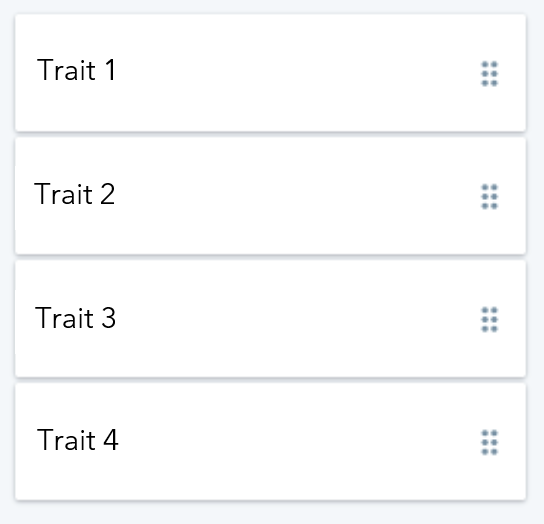What Makes for Great Company Culture?
Company culture intervenes at every level of the business. It impacts employee satisfaction, recruitment, customer perception, and has an integral effect on the bottom line. It impacts each employee personally — including upper management and can make or break your work experience.
Small companies are lucky, a company culture might come very easily. If employees generally get along, they will likely establish a culture of their own, without having to think about the elements that go into it. The dynamics between individuals and a shared set of interests can help establish good culture quickly.
For larger companies, it won’t be as easy. Small companies might notice that as they begin to scale up, they lose some of the workplace dynamics they previously loved. It’s hard for a culture to come naturally when you’ve got hundreds to thousands to tens of thousands of workers all under the same roof. This is the time for management to take a step back and think, what should the culture of this company look like? What can we be doing to help establish this?
To help managers find footing in defining their workplace culture, they should look for inspiration, what matters, and consider where their culture currently stands.
Today’s top companies for culture
Each year Comparably sets out to rank the companies with the best workplace culture. Over the last two years, the same big names have been making the list, and we’re not surprised. Google, Hubspot, and Zoom have all ranked in the top 5 for company culture in both 2019 and 2020. What makes them so great?
We’ve talked about Google before, and we aren’t surprised to be talking about them again. That’s because Google prioritises their employees. They’re a leader in employee satisfaction, retention rates, and unsurprisingly office culture as well. Yet, what is it specifically that puts their company culture above the rest?
A lot goes into good company culture — flexibility, purpose, communication but Google defines itself with its innovation. Google has a strong culture of creativity and innovation to excite its employees.
“The constant drive to be better, to improve. Google does this for its employees, philanthropy, products, etc. I’m humbled by the conversations happening every minute with eerily intelligent people about the betterment of everything.” –Google employee

Hubspot
When it comes to workplace culture — Hubspot gets pretty serious. The Hubspot ‘culture code’ introduces itself with a 128-page presentation. They give us a lot to unpack, but one of the key takeaways is that they treat every employee equally. Their culture code boasts how it shares “everything with everyone”. Meaning that it doesn’t discriminate on which employees can access what information. Hubspot also notes that they “don’t like pulling rank” and are “accepting of all input”. The company’s commitment to equality in the workplace is immediately apparent in their culture code, and it creates a culture where every employee feels valued.
More than this, Hubspot also has as a strong culture of trust between management and employees. This is the sort of dynamic that occurs when companies avoid ‘pulling rank’. When each employee is entrusted with the same company information, trust is established.

Zoom
Zoom has been making major waves when it comes to company culture. In 2019 they had the happiest employees of any top company, and again in 2020. What’s their secret? In an interview early last year CEO Eric Yuan talked about the company’s focus on employee and customer happiness, how he was placing it at the forefront of the business. Some of Zooms initiatives in this area include,
- New team members receiving dedicated mentors to teach them about Zooms culture and vision
- All-hands quarterly meetings in every office to build connections
- Their volunteering group ‘Happy Crew’ which drives events, programs, and finds creative ways to recognise co-workers
One element that all of these initiatives have in common is the company connections that are built. Zoom has a strong sense of community and encourages employee interactions in and out of the office. This helps employees feel supported, as though they are a part of something larger.

What these companies teach us
Innovation, equal treatment, trust, and sense of community appear to be part of the core structure of a strong company culture. Depending on your company’s values, some of these elements may be more important than others. For those working in the tech industry, innovation will be key. However, for not-for-profit organisations, a sense of community, trust, or equal treatment might be a more important focus.
Where does your company stand?
Building a strong culture requires more than just blindly implementing strategies used by other companies. It requires an in-depth understanding of your employees, their values, and how your workplace culture is currently defined.
A CiVS employee survey can help you to capture all these elements. Gathering perspectives across hundreds or thousands of employees and summarising it to deliver no-fuss insights about your company. These insights can identify key areas of improvements and recognise where your company excels. The survey is completely customisable to your company’s specific objectives.
Below we have some example questions on company culture that can be implemented in your next employee survey,
- Do you believe, currently, there is a defined culture in the workplace? Yes / No
- Which of these traits do you find most integral to a strong company culture? Please rank them from most to least important.

- On a scale of 1-5, how do you rate the current company culture?

If you are interested in finding out more about our surveys and how they can help your business, please contact us at info@civs.com.au or give us a call at (08) 6314 0580
